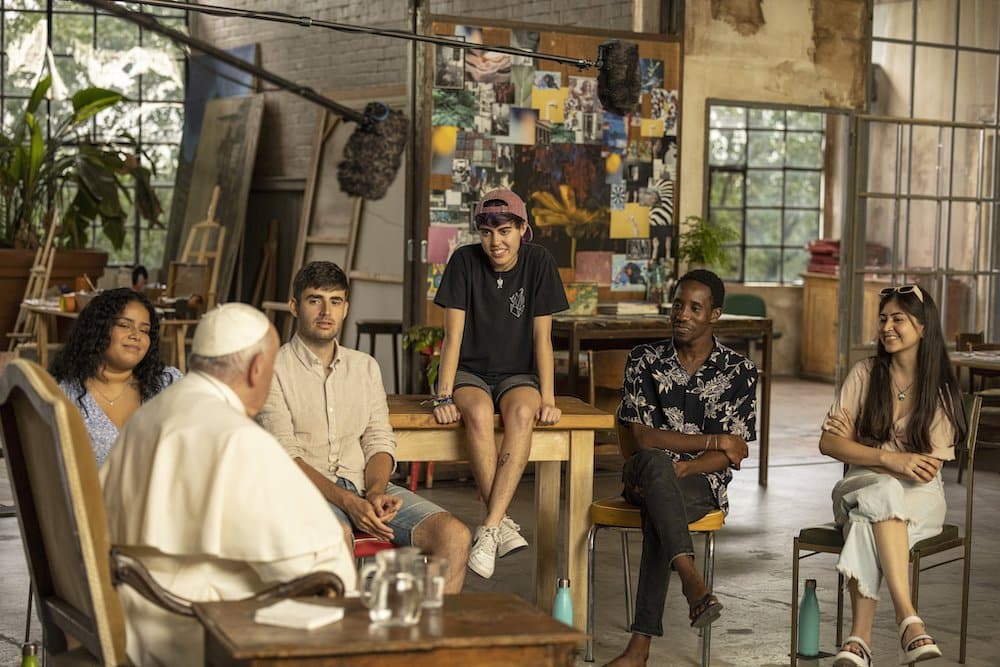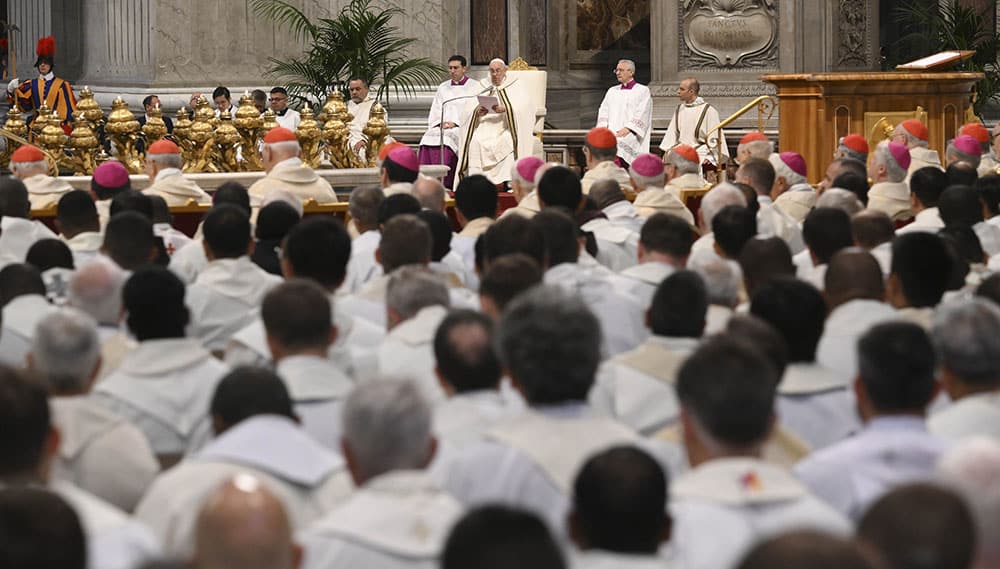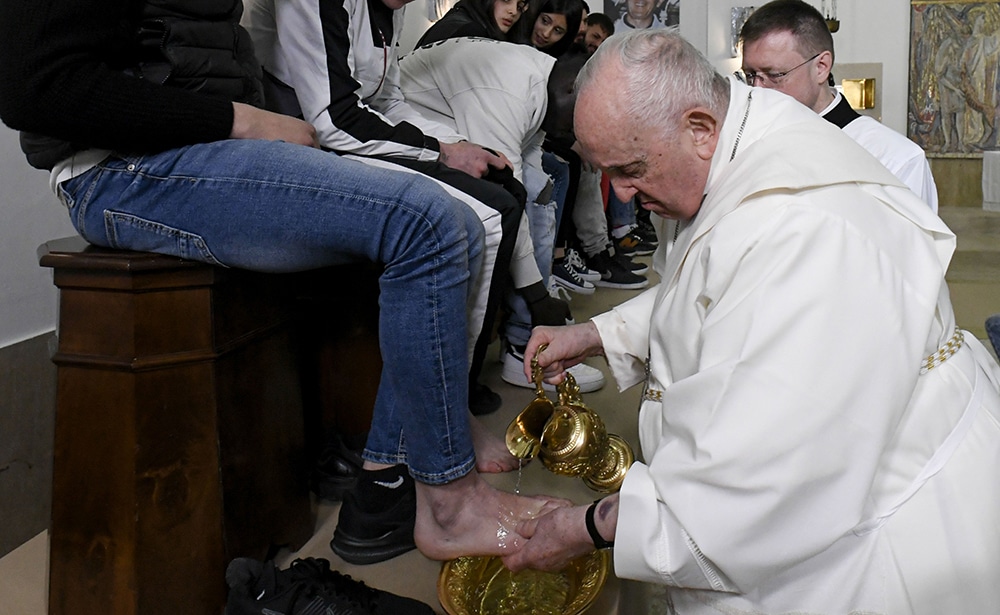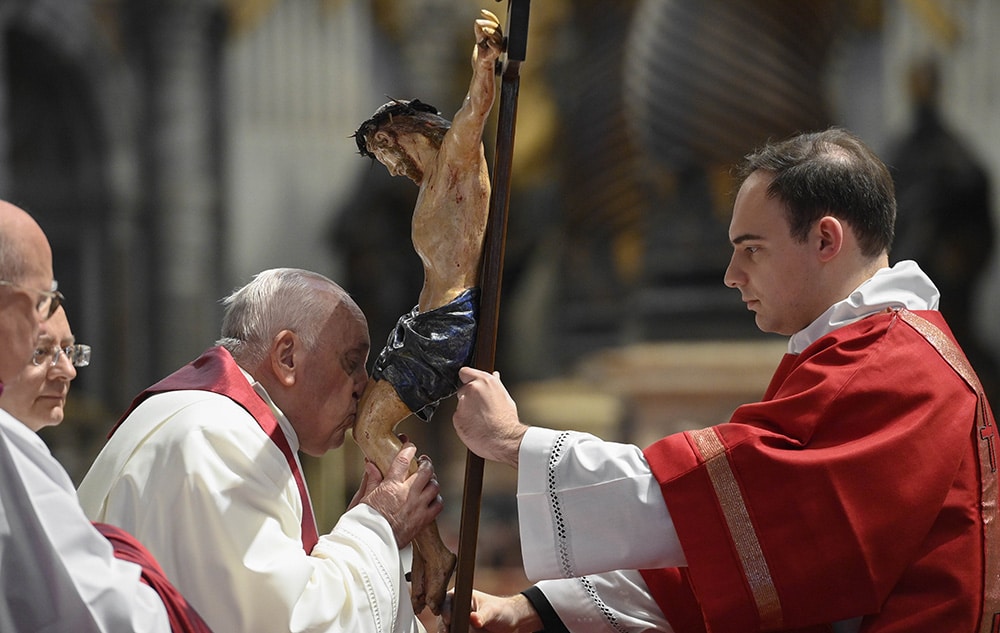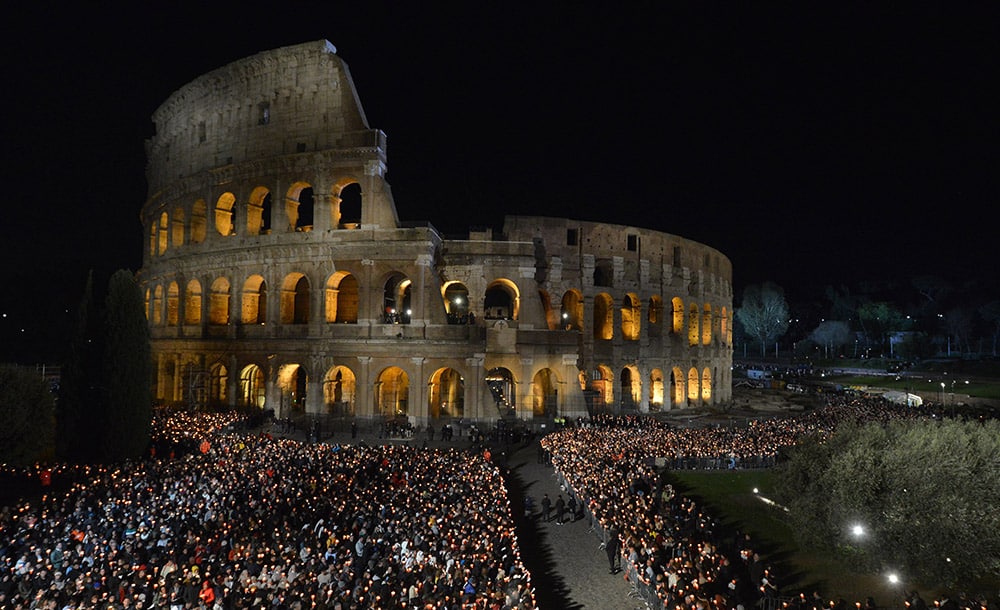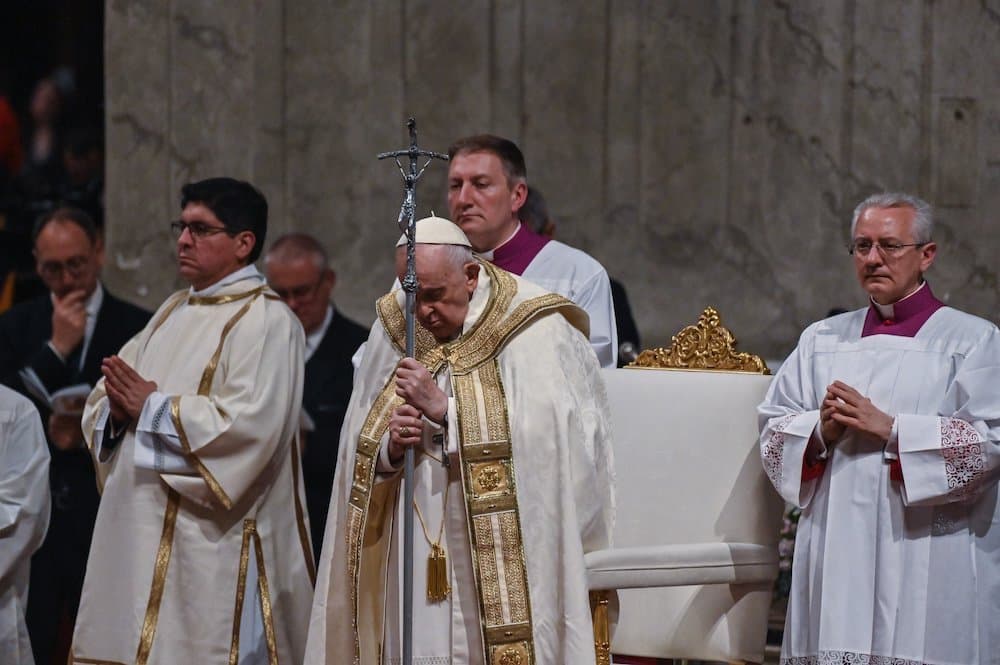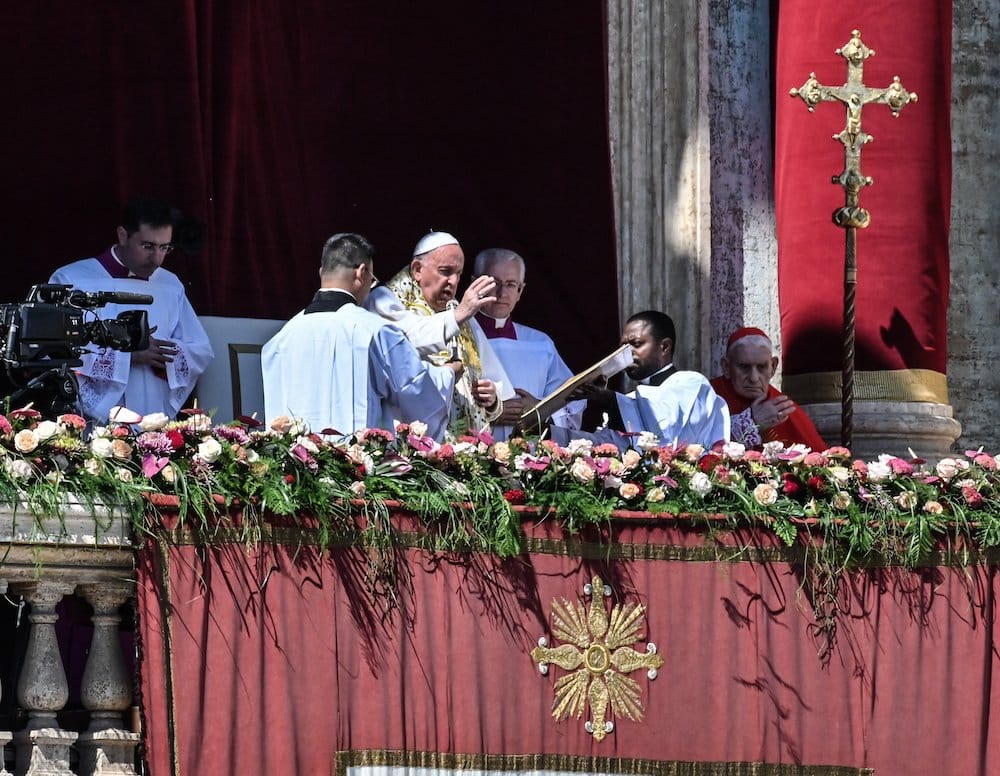VATICAN CITY (CNS) — Wanting to meet potential partners through dating apps like Tinder is “normal,” and the Church’s teaching on sex is “still in diapers,” Pope Francis said in a conversation with a group of young people gathered in Rome.
Speaking with 10 young adults, Spanish-speakers between 20 and 25 years old from around the globe, the pope responded to questions on topics ranging from the Church’s abuse crisis to abortion and from LGBTQ inclusion to immigration.
The conversation was filmed in June 2022 for a documentary titled “The Pope: Answers,” released on the streaming service Disney+ April 5.
The documentary begins by following each young person at home — in Spain, Senegal, Argentina, Peru, Colombia and the United States — as well as Pope Francis eating breakfast in the dining room of the Domus Sanctae Marthae, the Vatican guesthouse where he lives.
The film includes mundane scenes from the pope’s daily life, such as making calls in his small, cluttered office — a far cry from the library of the Apostolic Palace where he receives heads of state. His desk, which has no computer, bears stacks of printed Gmail messages and syntheses of findings from the current Synod of Bishops.
After being driven to a working-class neighborhood in Rome, the young people, a mix of Catholics, Christians, agnostics, atheists and a Muslim, asked the pope if he has a salary (no), a cellphone (no) and what he thinks about young people meeting romantic partners on Tinder.
“It’s normal,” he said. “Young people have that eagerness to meet each other, and that’s very good.”
In a conversation on pornography and masturbation opened by a young woman who says she creates adult content, the pope said that “expressing yourself sexually is a richness,” but that “everything that diminishes real sexual expression diminishes you too, it makes you partial, and it impoverishes that richness.”
The pope warned against labeling all sexual activity as “ugly” and said the Church’s “catechesis on sex is still in diapers.”
“Christians haven’t always had a mature catechesis on sex,” he added.
Asked by a self-described nonbinary person about the treatment of LGBTQ people in the Church, Pope Francis said people who use the Gospel to sow hate “live to condemn others because they don’t know how to ask forgiveness for their own faults.”
“I don’t have the right to cast anyone out from the Church,” said the pope, referring to members of the LGBTQ community. “My job is to receive, always.”
One woman recounted her experience working in a group called “Catholics for the Right to Choose” in Argentina and gave Pope Francis a green handkerchief, a symbol of the pro-choice movement in Argentina, which legalized abortion in 2020.
The pope said he instructs priests ministering to women who have had abortions to “not ask many questions and be merciful, like Jesus is.”
“A woman who aborts cannot be left alone,” he said. “She must be accompanied.”
Yet he noted that abortion must also be looked at “scientifically, and with a certain coldness,” stating that at one month from conception a human embryo is not “a bunch of cells that got together, but a systemized human life.”
“It is one thing to accompany someone who did something, and another is to justify the action,” he said.
A young man who had been abused when he was 11 years old by his teacher, whom he described as a numerary of Opus Dei, in Bilbao, Spain, presented a card written by Pope Francis to his father in 2014 in response to the situation. The pope had then urged the father to present the case to the then-Congregation for the Doctrine of the Faith, which he did, but further investigations were not taken.
“These cases do not expire” in the Church said Pope Francis, noting that if cases of abuse against minors reach a statute of limitations “I lift them automatically.” The pope told the young man he would get the case reviewed.
Pope Francis stressed the Church’s “zero tolerance” policy on abuse and noted that while a culture of abuse is “unfortunately everywhere,” including outside the Church, “what is being done in each diocese and the Vatican is an example in the fight against abuse.”
In one of the conversation’s final exchanges, a woman who was preparing to become a religious sister described how she fell away from the faith on a visit to Rome due to its opulence.
“The true Church is on the peripheries; in the center there are good people, holy people, but there is also much corruption, and that needs to be recognized,” said Pope Francis.
At the conversation’s end, the pope thanked the young people for the conversation saying he learned a lot from them, and joked that in conclusion he risked making a marketing statement:
“This is the way of the Church: all brothers and sisters, all united, each their own points of views, their positions, some closer, some further, but brothers and sisters, a fraternity.”

